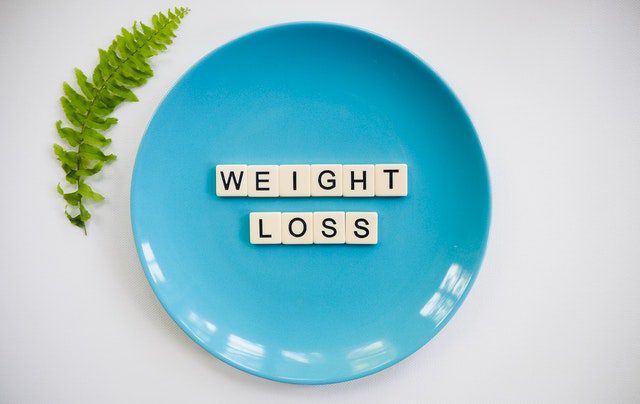Obesity and being overweight along with their related complications are becoming of increasing concern, especially in developed first-world nations. To face some of these concerns, diet or weight loss pills have been something people try as an “easy” first step. It’s important to note that there can be negative effects of weight loss pills. Many contain chemical substances that help in reducing or controlling body weight, usually by suppressing the appetite.
It is claimed that these drugs make the body lose weight or they support other methods of weight loss. These mechanism of action include:
- Reduction in appetite
- Reduction in absorption of nutrients like fat, and/or
- Increase fat burning
The list of weight-loss drugs is long, out of which four are approved for use by the U.S. Food and Drug Administration (FDA). These are:
- Bupropion-naltrexone (Contrave)
- Liraglutide (Saxenda)
- Orlistat (Xenical)
- Phentermine-topiramate (Qsymia)
Each of these drugs (in addition to others not mentioned) have multiple negative effects when included in weight loss pills. Some of them are:
- Bupropion-naltrexone:
- nausea, vomiting, diarrhea, or constipation
- headache, dizziness
- dry mouth
- sleep disturbances
- Orlistat:
- loose and oily stools or constipation, flatulence, frequent bowel movements that are hard to control
- nausea, headache
- may contribute to deficiency in fat-soluble vitamins, such as vitamins A, D, E, and K
- rare cases of severe liver injury have been reported
- Liraglutide:
- nausea and vomiting are chief complaints
- constipation or diarrhea, decreased appetite, dizziness
- headache
- intense abdominal pain
- Phentermine-topiramate:
- increases in heart rate and blood pressure
- sleep disturbances, constipation, and nervousness
- topiramate increases the risk of birth defects
Some of the popular weight loss pills like Ephedra, Hydroxycut, Fenfluramine, etc. have been banned by the FDA because of severe side effects like:
- increased heart rate
- high blood pressure
- agitation
- sleeplessness
- kidney problems
- liver damage
- rectal bleeding
Alternative Solutions For Weight Loss
Because of these above-mentioned negative side effects of weight loss pills, unless medically indicated, it is better to follow non-drug techniques. The alternative solutions have been proven to be more effective and more safe than the drug techniques.
Alternative Weight Loss Techniques:
- Increase water intake
People may feel hungry and consume extra calories when instead they are simply thirsty. Drinking water can boost metabolism by 24–30% so that weight gain can be curbed. Taking water before a meal also helps to consume less, as suggested by many studies.
- Drink green tea and coffee
Caffeine from coffee boosts body metabolism by 3-11% and increases fat burning by up to 10–29%. It should be ensured that coffee should not contain a high sugar component. Green tea contains small amounts of caffeine and powerful antioxidants called catechins, which act together to promote fat burning and promote weight reduction.
- Intermittent fasting
It has been believed that the practice of intermittent fasting and thus negative side effects of weight loss leads to an immune response which repairs cells and produces positive metabolic changes like reduction in levels of triglycerides, LDL and cholesterol. It also reduces body fat mass and therefore helps in weight loss.
- Consume more fiber
Fiber is found only in plant products like fruit, vegetables, oats, wholegrain, brown rice, beans, peas, and lentils. Some studies suggest that fibers promote early satiety, and therefore eating more calories is restricted. In the long run, this helps to lose weight. It is advised for people who are overweight to consume plenty of fruits and vegetables which are rich in fiber but in moderation for unhealthy fat and simple carbohydrates.
A natural fiber supplement called glucomannan has also been proved to lose weight. It absorbs water in the intestines, swells up and makes the intestine full as it stays there for a while. It also delays the emptying of the gastric contents. Hence, it can lead to early satiety and thus weight loss.
- Try low-carbohydrate and high HDL
High carbohydrate diets that consume a lot of bread and pasta contain a high concentration of sugar and grains which are deprived of their fibrous, nutritious parts. Therefore it increase blood sugar rapidly, leading to hunger and increased food intake a few hours later. Also, the patient should avoid alcohol and high carbohydrate junk foods such as chocolate, biscuits, crisps, and sweet fizzy drinks.
Researches have shown that a low-carbohydrate regimen helps to lose weight 2–3 times more than that by a low-fat diet in addition to other health advantages. It’s important to not carefully read labels, as sugar in food and drinks can come in various forms. Some of these sugar alternatives to avoid are fructose, sorbitol, aspartame, xylitol and monk fruit. A high fructose intake is associated with an increased risk of obesity, type 2 Diabetes, and heart diseases.
Dietary products containing higher amounts of cardioprotective high density lipoprotein (HDL) like olive oil, beans and legumes, whole grains, high-fiber fruit, fatty fish, nuts, etc. help to lower the inflammatory impact of LDL cholesterol in the body and also aid in controlling weight gain.
- Exercise regularly
For a person who is healthy and active, regular intake and burning of calories should maintain a state of balance. If there exists a state of disparity between the two, obesity or weight loss ensues (at both ends of the spectrum). For people who are overweight, the intake of food could be high, and so they must be advised to exercise regularly to burn off fat, especially around the belly. Aerobic exercises, strength training and high-intensity interval training (HIIT) are excellent methods to burn calories and improve physical as well as mental health.
To sum up, except for very few drugs, the pharmacological method of management of obesity and excess weight has greater side effects and a limited role. Instead, nonpharmacological methods like planning one’s meals with a chart, avoiding alcoholic products and junk food, getting enough sleep and water, and preference to a low carbohydrate and high fiber diet are the most important and effective alternative solutions for obesity. These methods, on the one hand, help obese patients to lose weight and achieve body mass index (BMI) within the normal range and, on the other hand, help them to lead a healthy life.





